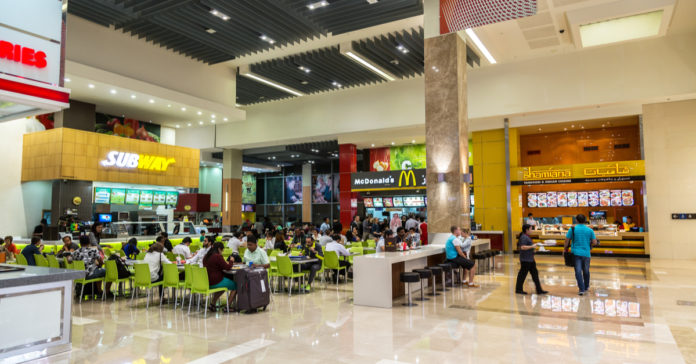Food outlets in Dubai will no longer be required to serve food out of public view during Ramadan fasting hours this year.
Dubai’s Department of Economic Development announced the decision on Sunday, confirming that screens and curtains that were previously used, particularly in malls, will no longer be needed.
“Restaurants will be allowed to serve customers without putting in place curtains, dividers or facades as has been the mandatory practice previously,” the authority said.
“Restaurants are also not required to obtain a permit for serving food to customers during Ramadan fasting hours. The new circular replaces circulars issued in previous years that have required restaurants to block dining areas from the sight of those who are fasting.”
In the past food and beverage outlets, including bars and restaurants in hotels, would remain closed until the fast was broken at sunset.
But in recent years, those restrictions were lifted and food outlets typically remained open throughout the day, but would screen off those eating and drinking.
In recent years the United Arab Emirates has been relaxing the Islamic rules which used to regulate its society.
Subscribe to our newsletter and stay updated on the latest news and updates from around the Muslim world!
Last year it decriminalised the consumption of alcohol and lifted the ban on unmarried couples living together.
New rules stipulate that anyone who drinks or is in possession of alcohol or sells alcoholic beverages in authorised areas without an alcohol licence will not face penalties. However, a person still must be at least 21 years old to drink legally in the UAE and anyone caught selling alcohol to someone deemed under age will be punished.
And the law also allows for the legal cohabitation of unmarried couples. Until recently it was illegal for an unmarried couple, or even unrelated flatmates, to share a home in the Emirates.
Also last year the United Arab Emirates agreed to normalise relations with Israel in exchange for Tel Aviv agreeing to suspend its attempts to annex parts of the occupied West Bank.
In a joint statement, Israel, the UAE and the U.S. said Prime Minister Benjamin Netanyahu, Mohammed bin Zayed and then President Donald Trump had “agreed to the full normalisation of relations between Israel and the United Arab Emirates.”
The UAE thus became the third Arab country to reach a peace agreement with Israel, after Jordan and Egypt in 1994 and 1979 respectively. Bahrain, Sudan and Morocco would follow suit.
Palestinians called the normalisation deals a reward to the occupiers for their crimes against Palestinians.




















